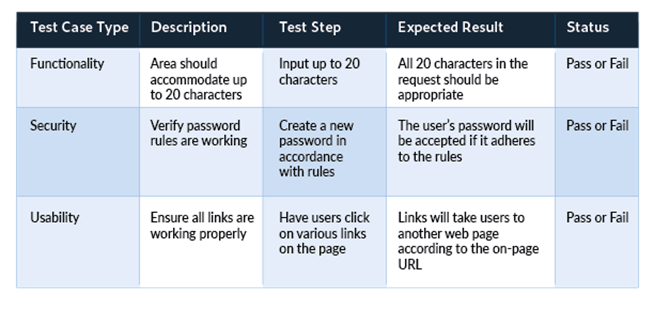Home /
Key Features of Good Test Cases
Key Features of Good Test Cases
Today, in the world, testing plays an important role in delivering high-quality products in Software Development.
Well-written test cases are the heart of effective Testing. Either you are working in manual testing or automation testing.
➭ Some Key Features of Good Test Cases
- Clear and Simple Language
- Preconditions and Input Data
- Expected outcome
- One Specific Functionality
- Unique Test Case ID and Descriptive Title
- User Story
- Reusable steps
- Target (Result) Oriented Approach
- Positive Test and Negative Test coverage
- Update and Maintain

- Clear and Simple Language –
An Effective Test Case is always written in Clear and Simple Language. Keep sentences short and direct. e.g., click on the “Sign in” button. - Preconditions and Input data –
Certain preconditions and Input data are required for repeatable testing. - Expected outcome –
After each Test Case, the expected outcome is provided. - One Specific Functionality-
A good Test Case should not depend on the result of another test case. A good test case must have One Specific Functionality. - Unique Test Case ID and Descriptive Title-
Every test case must have a unique ID and a descriptive Title for the objective. e.g. TC_001. - User Story-
Every test case must have a user story that ensures complete test coverage and helps identify gaps. - Reusable steps-
An effective Test Case must involve reusable steps socially for common flows. e.g., Login or Logout. - Target (Result) Oriented Approach-
Focuses on the expected outcome for each test case. - Positive Test and Negative Test coverage-
A good test case does not just depend on expected behavior, but it also checks how the system reacts and handles input or invalid actions. - Update and Maintain-
An effective test case should be easy to update and maintain.

Read More: Types Of Test Cases In Software Testing
In Conclusion-
An effective test case is the base of responsible testing. It reduces doubtfulness, improves coverage, and ensures consistency.
